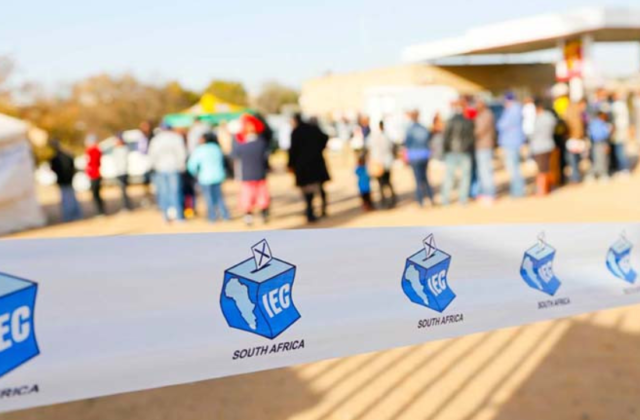
By Imam Dr. A. Rashied Omar
On the 1st November 2021, South Africans will convene our sixth non-racial municipal elections to elect new local councils for all municipalities in the country.
In post-Apartheid South Africa, Muslims are recognised as equal citizens and partners in the shaping of the destiny of our new nation. As conscientious Muslims and responsible South Africans citizens it is important for us to positively engage the public processes in our country. In this khutbah (sermon) I would like to provide some guidelines for voting in the upcoming municipal elections.
Three Key Principles of Islamic Governance
The Islamic teachings provide us with three key principles on how public policies or political strategies should be applied or executed in society. These three key Islamic principles are, `adlor justice, shura or mutual consultation and hisbah or accountability. These principles should feature prominently in our participation in the municipal elections and our evaluation of the manifestos and histories of political parties. Applying Islamic principles to our forthcoming municipal elections I offer the following five (5) specific guidelines.
Islamic Guidelines for Voting
First, in terms of the Islamic ethico-legal position there is no explicit textual evidence (nass) either from the Qur’an or Sunna (prophetic tradition) that can be used to substantiate the view that Muslims should vote only for so-called Islamic parties or any other party. It is therefore my considered view that Muslims should be encouraged to participate in the municipal elections and vote for a political party of their choice.
Second, when a Muslim votes for a particular party, it does not necessarily mean that one agrees completely with all of their ideology or policies. Rather the intention (niyya) should be that the candidate (or party) will be of help to the whole community and represents the best alternative among the various options. Muslim jurists (fuqaha) have always advocated the principle of realism represented in the concept of akhaff al-dararayn – lesser of the two evils. In other words, if the major part of the manifesto of a political party is deemed non-objectionable in terms of Islamic ethics, then it is acceptable for Muslims to vote for such a party.
Third, voters are advised to study the histories of each party, the status and integrity of their candidates, their past and present policies and the promises they make in their electoral manifestos. The party which in their estimate best resonates with the Islamic value system and advances the cause of the poor and the marginalized should be supported.
Fourth, if any political party is found to be overtly and unequivocally hostile to Islam, it would not be in the best interests of Muslims to vote for such a political party.
Fifth, given our apartheid legacy Muslims should especially not vote for a political party based on racial lines since non-racialism is one of the hallmarks of Islam. The Qur’an regards differences in the pigmentation of skin and differences in languages as a sign of the existence of God. Discrimination against people on the basis of the colour of their skin or language is tantamount to denying the existence of God. In this regard in Surah al-Rum, Chapter 30, Verse 23, Allah, the Sublime proclaims: “And of the wondrous signs of Allah exists is the creation of the heavens and the earth and the variations and diversity in your languages and in the pigmentation or colours of your skins; for in this there are messages for those who think and reflect”
In his famous farewell sermon at ‘Arafat on his final pilgrimage, just before his death, the Prophet Muhammad (pbuh) summed up the essence of the anti-racist message of Islam when he proclaimed: All human beings are descendent from the prototype Adam, and Adam has been created from the earth. There is no superiority for an Arab over a non-Arab, nor for a non-Arab over an Arab. Neither is there superiority for a white person over a black person, nor for a black person over a white person, except the superiority gained through God-consciousness. Indeed, the noblest of you in the sight of God is the one with the most righteous conduct (taqwa).”
Conclusion
In conclusion, it is my considered view that local government elections are as important if not more than national elections since they facilitate the process of taking democracy down to the grassroots level. For Muslims democracy should not merely mean casting ones vote periodically but more importantly, shura or participatory democracy in Islam demands the building of consultative and transparent institutions that will root out endemic corruption and address the needs of the poor. The only real guarantee for healthy democracy is that of strong civil society that can hold those in power accountable for their moral and political mandate. Voters should further insist on accountability from their political parties and ensure that they make good their electoral promises.
May Allah guide us to cast our votes for the best candidates and parties that will not only serve the interests of Muslims but of all the poor and marginalised citizens in our country. We pray and make du’a that Allah, the Sublime, will guide our country to convene a peaceful municipal election and that it will result in the best possible outcome. Allahumma Amin






